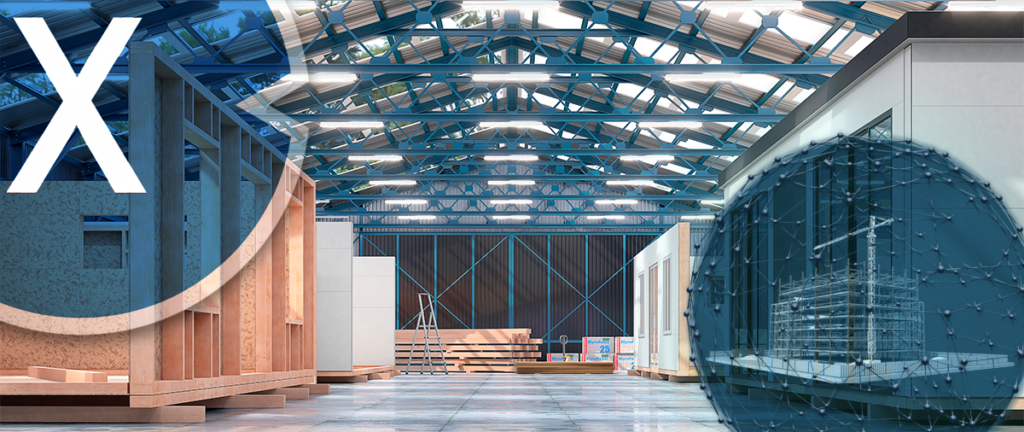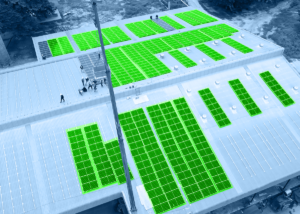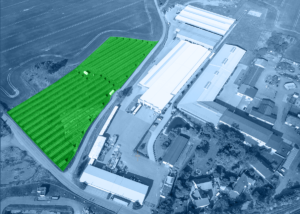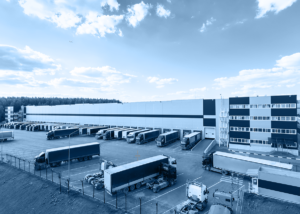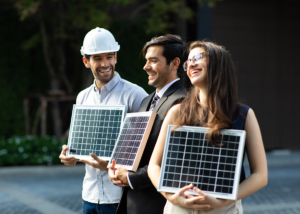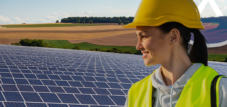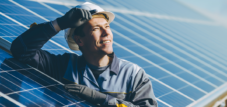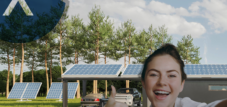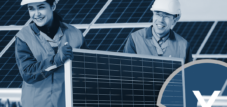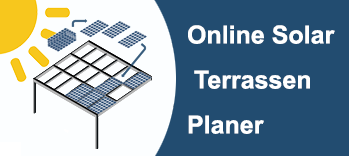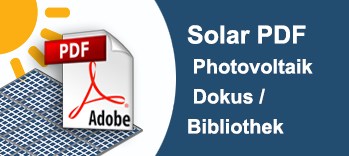Solar/photovoltaic companies: Top ten solar companies for PV ground-mounted systems or ground-mounted systems and solar parks | including Berlin & Brandenburg
Language selection 📢
Published on: July 10, 2023 / update from: July 10, 2023 - Author: Konrad Wolfenstein
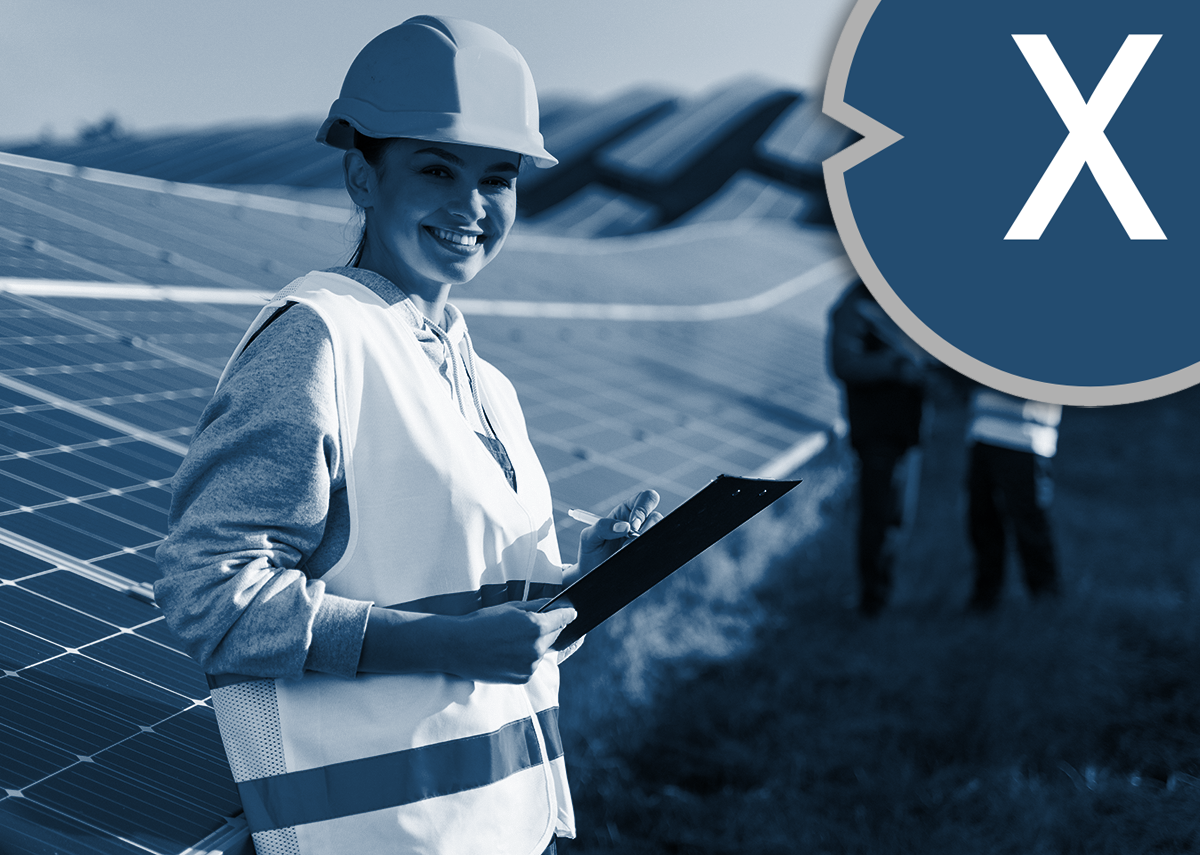
Solar company for PV ground-mounted systems or ground-mounted systems and solar parks – Image: Xpert.Digital
Solar parks in Berlin and Brandenburg: Innovative, environmentally friendly and future-oriented with our solar company
Our solar company is an experienced top ten partner for the planning, development and implementation of PV ground-mounted systems, ground-mounted systems and solar parks in Berlin and Brandenburg. We specialize in sustainable energy production and are proud to contribute to the energy transition.
Efficient project development for ground-mounted PV systems in Berlin and Brandenburg
We accept the challenge of developing tailor-made solutions for ground-mounted PV systems. We take into account the specific requirements of the location, such as soil conditions, solar radiation and topographical conditions. Our experienced experts carefully analyze the potential of the area and optimize the layout to ensure maximum energy production.
Sustainable energy production: Success factors for solar parks in urban areas
As a pioneer in the implementation of solar parks in urban areas, we know about the challenges and opportunities that arise here. We rely on close cooperation with local authorities to ensure smooth integration into the urban area. We ensure that our solar parks not only generate sustainable energy, but are also designed to be aesthetically pleasing.
Technology innovations for outdoor PV systems: potential and trends
Our solar company always strives to use the latest technology innovations to maximize the efficiency and performance of our outdoor PV systems. We rely on high-quality solar modules with high energy yield and are continually researching new approaches such as bifacial modules or optimization techniques to further increase energy production.
Environmentally friendly location selection for solar parks in Berlin and Brandenburg
Protecting the environment is important to us. When selecting locations for our solar parks in Berlin and Brandenburg, we carefully consider environmental aspects such as nature reserves, water resources and biodiversity. Through a comprehensive environmental impact assessment, we ensure that our solar parks have no negative impact on the local flora and fauna.
Grid integration and feed-in management in solar parks: challenges and solutions
The seamless integration of our solar parks into the existing power grid is of great importance to us. We work closely with local grid operators to ensure stable feed-in and optimal use of the energy generated. Through intelligent feed-in management systems, we can compensate for fluctuations in the grid and ensure a reliable power supply.
Financing options for PV ground-mounted systems and solar parks in the region
We understand the financial challenges our customers face. We therefore offer comprehensive advice on the various financing options, such as funding programs, loans and investor participation. Together with our partners, we develop tailor-made financing concepts to ensure the success of the projects.
Environmental impacts of solar parks: sustainability assessment and life cycle assessment
Our solar company attaches great importance to a comprehensive sustainability assessment and ecological assessment of our solar parks. We analyze the entire life cycle of the systems, taking into account factors such as CO₂ emissions, energy savings and ecological impacts. Through continuous optimization, we help ensure that our solar parks have a positive environmental balance.
Job potential and local added value through solar parks in Berlin and Brandenburg
The realization of our solar parks not only creates sustainable energy, but also jobs in the region. We rely on local suppliers and service providers to strengthen local value creation. We also offer training and qualification programs to train local workers to install and maintain solar systems.
Legal and approval aspects when implementing solar parks
Compliance with all legal and approval requirements is our top priority. We have extensive experience in handling approval procedures and work closely with the relevant authorities to ensure a smooth approval process.
Operation and maintenance strategies for outdoor PV systems: Efficient performance maintenance
To ensure the long-term performance of our outdoor PV systems, we implement efficient operation and maintenance strategies. Regular inspections, cleaning and maintenance measures are carried out by our trained specialist staff to ensure that the systems function optimally and to identify possible malfunctions at an early stage.
Benefits and Challenges of Scaling Solar Farms at Large Scale
Scaling solar farms on a large scale brings both benefits and challenges. We have the necessary expertise to realize solar parks of various sizes. We ensure that efficiency, sustainability and cost-effectiveness are guaranteed even with larger systems.
Solar parks as a contribution to the energy transition: potential for regional energy supply
Our solar parks play an important role in decentralized energy production and contribute to reducing CO₂ emissions. They offer potential for regional energy supply by generating renewable electricity directly on site. This reduces dependence on fossil fuels and strengthens the resilience of the region's energy supply.
Innovative technologies for cleaning and maintaining solar modules in solar parks
In order to maintain the efficiency and performance of our solar parks, we rely on innovative technologies for cleaning and maintaining the solar modules. These include, for example, robot-controlled cleaning systems that work efficiently and conserve resources and ensure optimal cleaning of the modules.
Monitoring and performance monitoring of PV ground-mounted systems: increasing efficiency and error detection:
Through continuous monitoring and precise performance monitoring, we can optimize the efficiency of our PV ground-mounted systems. We rely on innovative monitoring systems that record energy yield in real time and identify possible errors or malfunctions at an early stage. This allows us to react quickly and maximize the performance of the systems.
Collaboration and cooperation models between solar companies and local communities for solar parks in Berlin and Brandenburg
Our solar company attaches great importance to close cooperation with the local communities in Berlin and Brandenburg. We maintain an open dialogue to understand the concerns and needs of communities and incorporate them into our planning and implementation. Together we develop cooperation models that take local interests into account and build long-term partnerships. Through this collaboration, we create solar farms that not only generate sustainable energy, but also make a positive contribution to local development and community.
Plan your solar system for the most common applications conveniently online with our solar system planner!
With our user-friendly solar system planner you can plan your individual solar system online. Whether you need a solar system for your home, your business or for agricultural purposes, our planner offers you the opportunity to take your specific requirements into account and develop a tailor-made solution.
The planning process is simple and intuitive. You simply enter relevant information. Our planner takes this information into account and creates a tailor-made solar system that meets your needs. You can try out different options and configurations to find the optimal solar system for your application.
Additionally, you can save your plan to review later or share with others. Our customer service team is also available to answer your questions and provide support to ensure your solar system is optimally planned.
Use our solar system planner to plan your individual solar system for the most common applications and advance the transition to clean energy. Start now and take an important step towards sustainability and energy independence!
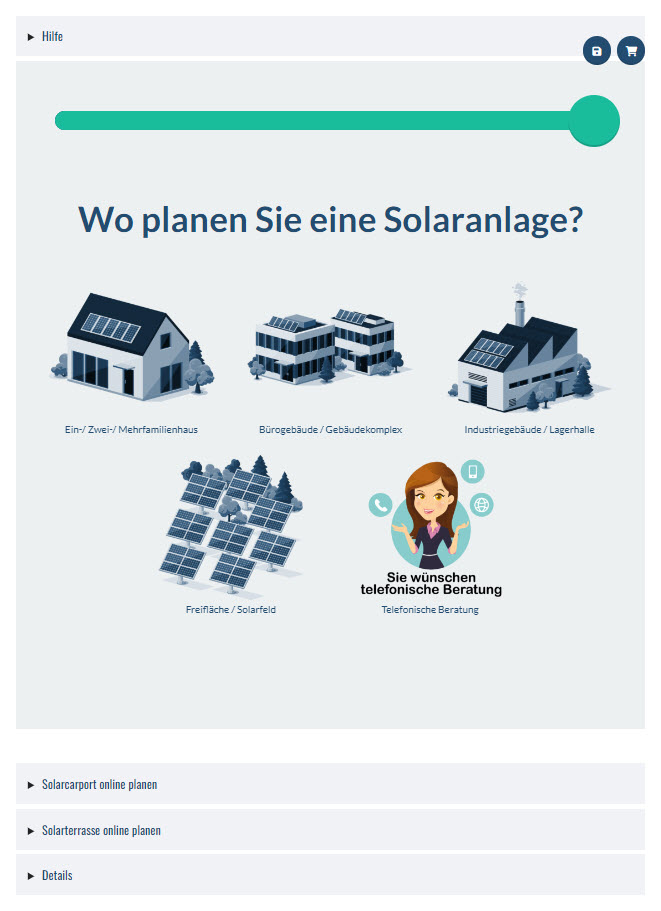
The solar system planner for the most common applications: Plan the solar system online here - Image: Xpert.Digital
More about it here:
Legal and approval aspects when implementing solar parks
The realization of solar parks requires a comprehensive consideration of legal and approval aspects. These aspects play a crucial role in the planning, construction and operation of such systems.
Choice of location
The choice of location for a solar park is of great importance. Various factors must be taken into account, such as solar radiation, the availability of space, proximity to the power grid and possible environmental impacts. There may also be regional regulations or restrictions that may affect the choice of location.
Spatial planning and land use plan
The construction of a solar park must be in accordance with the applicable spatial planning and land use plans. These plans determine which uses are permitted in certain areas and which requirements must be observed. It may be necessary to apply for appropriate changes or exemptions to enable the realization of a solar park.
Building permit
A building permit is usually required to build a solar park. All relevant building regulations, such as distance regulations to neighboring properties or requirements for the statics of the systems, must be adhered to. It may be necessary to submit extensive documentation detailing the proposed construction and demonstrating compliance with all applicable regulations.
natural reserve
Solar parks can have an impact on the surrounding nature, especially on flora and fauna. Therefore, in many cases, environmental impact assessments must be carried out to assess possible impacts and identify necessary protective measures. In some cases it may be necessary to plan compensatory or replacement measures to compensate for the impact on nature.
Network connection
Successful implementation of a solar park requires a reliable connection to the power grid. Technical requirements must be met to ensure a stable feed-in of the solar power generated. It may be necessary to conclude contracts with the local network operators and fulfill connection conditions.
Approvals and approval procedures
In addition to the building permit, other permits may be required depending on local rules and regulations. These can be, for example, water law permits for the use of water resources or permits for the use of chemicals. Applying for and carrying out such approval procedures often requires time and compliance with specific requirements.
Feed-in tariff and billing
In order to be economically successful, it is important that a solar park is integrated into the existing energy supply system. This includes applying for and processing feed-in tariffs or other compensation mechanisms that feed the solar power generated into the power grid. There may also be legal aspects to consider in connection with the sale of electricity and billing with energy supply companies.
Contracts and insurance
When implementing solar parks, various contracts and insurance policies are required. These can be, for example, lease or purchase agreements for the areas on which the solar park is built, or insurance to protect against operational risks or environmental damage. It is important that these contracts are carefully drafted and all relevant risks are adequately covered.
➡️ These aspects illustrate the complexity and scope of the legal and approval requirements when implementing solar parks. To be successful, it is important to engage subject matter experts and attorneys who have the necessary expertise and can assist in complying with all relevant regulations and procedures.
📣 Energy-related renovation and new construction, consulting, planning and implementation for industry, retail and municipalities
Our experienced team will support you in optimizing your buildings to reduce energy consumption and promote sustainable energy use with photovoltaics. We analyze your individual needs and create tailor-made concepts that make sense both economically and ecologically. Regardless of whether it is about the energy-efficient renovation of existing buildings or the construction of new energy-efficient structures, we are at your side. Industrial facilities, retail buildings and municipal facilities can reduce their energy costs and reduce environmental impact while improving the comfort and efficiency of their buildings through our tailored solutions.
👨🏻 👩🏻 👴🏻 👵🏻 Energy-saving renovation and new construction, advice, planning and implementation for private households
We offer comprehensive support for private households in the energy-efficient renovation and construction of new buildings with photovoltaics. Our experienced team is at your side to help you advise, plan and implement your sustainable energy solutions. We analyze your energy consumption, identify savings potential and develop tailor-made concepts to improve your energy efficiency. From improving building insulation to installing energy-efficient windows and doors to installing photovoltaic and solar systems - we accompany you step by step to make your home more energy efficient and environmentally friendly. Trust in our expertise and benefit from the numerous advantages that energy renovation and the use of renewable energies offer you. Together we will create a sustainable future for your home.
Environmental impacts of solar parks: sustainability assessment and life cycle assessment
Solar farms are considered one of the most important sources of renewable energy and make a significant contribution to reducing greenhouse gas emissions and combating climate change. Nevertheless, it is of great importance to carefully assess the environmental impact of solar parks and analyze their sustainability and ecological balance.
Life cycle consideration
The sustainability assessment of solar parks requires a comprehensive analysis along the entire life cycle of the systems. This includes the extraction of raw materials for the production of the solar modules, the transport of the components, the construction and commissioning of the park, operation and maintenance as well as disposal at the end of their life. Each of these steps may have environmental impacts that need to be assessed.
Life cycle assessment analysis
A life cycle assessment analysis makes it possible to quantitatively assess the environmental impact of solar parks. Various environmental categories such as greenhouse gas emissions, energy consumption, resource use, air and water pollution and land use changes are taken into account. The results of this analysis provide important information about how environmentally friendly and sustainable a solar farm is compared to other energy sources.
Greenhouse gas emissions
Solar farms do not produce any direct greenhouse gas emissions during operation. The greenhouse gas emissions that can be associated with solar farms come primarily from the manufacturing of the solar panels and infrastructure, as well as from energy consumption throughout the life cycle. The use of environmentally friendly materials, the use of renewable energies in the production and operation of systems, and the efficient use of resources can reduce greenhouse gas emissions.
Resource usage
The production of solar modules requires the use of certain raw materials such as silicon, aluminum, copper and rare earth metals. The extraction and processing of these raw materials may be associated with environmental impacts, such as land use changes, water consumption and waste production. It is important to pursue sustainable sourcing strategies and optimize resource consumption to minimize environmental impact.
Land use and biodiversity
Solar parks require space for the installation of solar modules. This can lead to land use changes and impact local biodiversity. It is crucial to assess the impacts on ecosystems and habitats and take appropriate measures to protect biodiversity. This can include integrating green spaces, protecting natural habitats and promoting biodiversity.
Water consumption
Solar farms typically do not require large amounts of water to operate. Compared to fossil-based energy sources such as coal or gas power plants, the water consumption of solar parks is usually low. This is beneficial in regions with limited water resources as water pollution is minimized.
Waste management
During the life cycle of solar parks, various types of waste are generated, such as defective or old solar modules. Effective waste management is important to minimize the impact on the environment. This can include recycling materials, safely disposing of harmful substances and using environmentally friendly recycling processes.
Social Impact
When assessing the sustainability of solar parks, the social impacts must not be neglected. This includes considering the impact on local communities, jobs, education and health. Solar farms can have positive social impacts by creating local employment opportunities and improving access to clean energy.
➡️ Assessing the environmental impact of solar parks requires a holistic view and the use of suitable assessment methods such as sustainability assessment and life cycle assessment analysis. Through continued improvements in technology, material sourcing and operational practices, solar farms can help produce clean and sustainable energy while minimizing environmental impact.
Job potential and local added value through solar parks in Berlin and Brandenburg
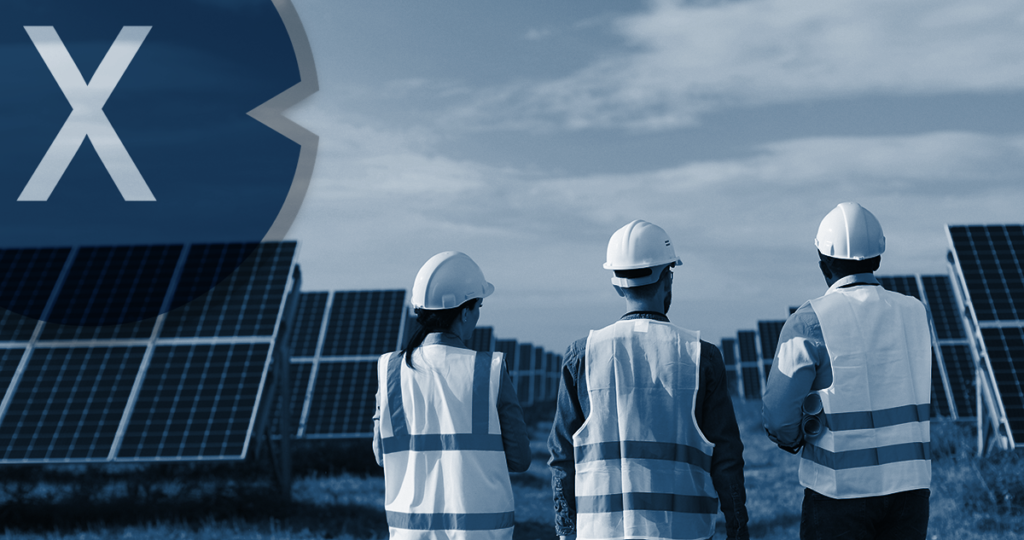
Efficient project development for ground-mounted PV systems in Berlin and Brandenburg – Image: Xpert.Digital
Solar parks in Berlin and Brandenburg not only make a positive contribution to the energy transition and the reduction of greenhouse gas emissions, but also offer significant job potential and create local added value.
Jobs during the construction phase
Building a solar farm requires extensive construction work, including installing solar panels, building mounting systems, and laying cables. This creates temporary jobs for skilled workers from various trades such as electricians, construction workers, engineers and logistics experts. The construction phase therefore offers an opportunity for local companies and workers to benefit from the projects.
Jobs in operations and maintenance
As soon as a solar park is put into operation, long-term jobs are created for the operation and maintenance of the system. This includes regular inspections, cleaning, maintenance and performance monitoring. Technicians, electricians and other skilled workers are needed to ensure that the solar farm operates efficiently and reliably. These jobs are often long-term and provide stability in the region.
Skilled development and training
The development of solar parks in Berlin and Brandenburg opens up opportunities for training and qualification of skilled workers in the field of renewable energies. Local educational institutions can offer training and courses to prepare people for jobs in the solar industry. This contributes to the development of skilled workers and to strengthening the regional economy.
supply industry
The development of solar farms also creates demand for various products and services provided by the supply industry. This includes the need for solar panels, mounting systems, cables, inverters, monitoring technologies and other components. Local companies have the opportunity to manufacture these products or act as suppliers, which in turn contributes to local added value.
Service sector
Solar farms often require support services such as engineering, financial and legal advice, insurance, marketing and communications. Operating solar farms requires a variety of services that can be provided by local companies. This creates additional jobs and strengthens the service sector in the region.
Regional value chain
The development of solar parks creates a regional value chain that stimulates the local economy. Local companies have the opportunity to win contracts for construction, operation, maintenance and services, which in turn generate income and tax revenue in the region. This supports economic activity and contributes to sustainable local development.
Tourism and image enhancement
Solar farms can also be tourist attractions and attract visitors interested in renewable energy and sustainable technologies. This can lead to additional sources of income for the local economy, such as through tourism services, accommodation and catering. In addition, solar parks can strengthen the region's image as a pioneer in renewable energy and sustainability.
➡️ The development of solar parks in Berlin and Brandenburg therefore offers a variety of jobs and opportunities for local value creation. By promoting renewable energy, regions can benefit from the social and economic benefits that come with switching to clean energy sources. It is important that local politics and business work together to create the best possible conditions for creating jobs and strengthening the regional value chain.
Benefits and Challenges of Scaling Solar Farms at Large Scale
Scaling solar farms at scale offers a variety of benefits, but there are also challenges that must be overcome. Important and interesting details on this topic are explained below:
Benefits of scaling solar farms on a large scale
1. Cost effectiveness
Cost savings can be achieved by scaling solar farms. Larger projects allow solar panels and other components to be purchased in bulk, resulting in cheaper prices. In addition, operating and maintenance costs can be reduced by centralizing and standardizing processes.
2. Economies of scale
Large-scale solar farms enable more efficient use of available resources. By consolidating large areas and installing a large number of solar panels, higher overall performance can be achieved. This leads to better utilization of available sunlight and higher energy production per area.
3. Grid stability and energy supply
Large-scale solar farms can help stabilize the power grid, especially in regions with high levels of solar radiation. The decentralized distribution of large solar parks allows energy production to occur closer to the points of consumption, leading to improved grid stability and a reduction in transmission losses.
4. Reducing greenhouse gas emissions
Scaling solar farms enables a significant reduction in greenhouse gas emissions. Large solar capacities help replace fossil fuels and increase the share of renewable energy in the energy mix. This is an important contribution to climate protection and to reducing dependence on non-renewable energy sources.
5. Job potential
Scaling solar parks creates jobs along the entire value chain. This includes the planning, construction, operation and maintenance of the systems as well as the production and distribution of solar modules and other components. The solar industry therefore offers a variety of employment opportunities and contributes to regional economic development.
Challenges in scaling large-scale solar farms
1. Availability of suitable space
Identifying and obtaining large enough areas to install solar farms can be challenging. Land availability and compliance with zoning and environmental regulations can hinder the scaling of solar projects. Close cooperation with local authorities and consideration of environmental aspects are crucial to finding suitable locations.
2. Grid integration and grid connection
Scaling solar parks requires careful grid integration and a reliable grid connection. The power grid infrastructure must be able to absorb and distribute the solar energy generated. Bottlenecks or incompatibilities in the network can hinder scaling and require additional investments in network infrastructure.
3. Financing
Large solar parks require significant investments. Securing funding for such projects can be challenging, particularly in terms of raising capital and demonstrating viability. A solid business model, clear financial planning and the involvement of investors are essential prerequisites for scaling solar parks.
4. Technical challenges
Scaling solar parks also brings technical challenges. Managing large systems requires advanced monitoring and control systems to optimize solar panel performance and minimize failures. The use of storage technologies may also be necessary to offset the intermittent nature of solar energy and ensure continuous power supply.
5. Environmental Impact
Although solar farms are generally considered environmentally friendly, large projects can still have some impact on the environment. Scaling solar farms therefore requires careful environmental impact assessment to assess possible impacts on local fauna and flora, water balance and landscape change. Implementing measures to protect the environment and minimize impacts is essential.
➡️ Scaling solar farms at scale offers significant benefits in terms of cost efficiency, energy production and job potential. At the same time, however, overcoming challenges such as space availability, grid integration, financing and environmental compatibility are of great importance. By looking at these aspects holistically, solar parks can be successfully implemented on a large scale to advance a sustainable and renewable energy future.
- Warehouses, production halls and industrial halls with their own power source from a photovoltaic roof system - Image: NavinTar|Shutterstock.com
- Industrial plant with its own power source from an outdoor photovoltaic system - Image: Peteri|Shutterstock.com
- Plan solar systems with photovoltaic solutions for freight forwarding and contract logistics
- B2B solar systems and photovoltaic solutions & advice
- Plan photovoltaics for warehouses, commercial halls and industrial halls
- Industrial plant: Plan a photovoltaic open-air system or open-space system
- Plan solar systems with photovoltaic solutions for freight forwarding and contract logistics
- B2B solar systems and photovoltaic solutions & advice
With Xpert.Solar your individual photovoltaic planning & solar solution with installation
I would be happy to serve as your personal advisor.
You can contact me by filling out the contact form below or simply call me on +49 89 89 674 804 (Munich) .
I'm looking forward to our joint project.
Xpert.Digital – Konrad Wolfenstein
Xpert.Digital is a hub for industry with a focus on digitalization, mechanical engineering, logistics/intralogistics and photovoltaics.
With our 360° business development solution, we support well-known companies from new business to after sales.
Market intelligence, smarketing, marketing automation, content development, PR, mail campaigns, personalized social media and lead nurturing are part of our digital tools.
You can find out more at: www.xpert.digital – www.xpert.solar – www.xpert.plus



